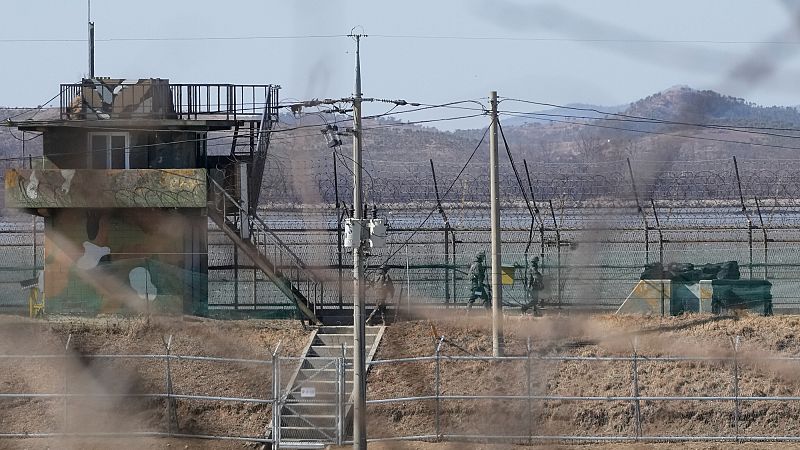
South Korea’s military fired warning shots at a group of North Korean soldiers who crossed the border on Tuesday, according to Seoul government officials.
It has been almost a year since the last report of troops from North Korea violating the heavily fortified demarcation line between the two countries.
In a statement, South Korea’s Joint Chiefs of Staff said about 10 North Korean soldiers — some of whom had weapons — stepped across the border at 5pm on Tuesday in the eastern section of the Demilitarised Zone (DMZ).
The group returned to North Korea after South Korea broadcast warnings and fired warning shots, the statement added.
The 248km-long and 4km-wide DMZ, a legacy of the 1950-1953 Korean War, is among the most dangerous border areas in the world, with an estimated 2 million landmines.
The motive for Tuesday's border crossing by North Korean troops remains unclear.
However, South Korean media reported that the soldiers may have unintentionally crossed into enemy territory during a patrol ahead of frontline works.
In October, Pyongyang said it would build up its defences at the border in response to what it called “confrontational hysteria” from South Korea and the US.
North Korea was working on tasks such as reinforcing barbed wire fences, South Korea’s military said in late March.
Tuesday’s crossing comes after several similar incidents last June. At the time, Seoul said the crossings were not deliberate, noting that the military border signs in the area where they took place were not clearly visible.
Tensions between the neighbours are running high, as North Korean leader Kim Jong-un continues to boast about his country’s nuclear capabilities while sending thousands of troops to support Russia in its invasion of Ukraine.
Meanwhile, South Korea continues to suffer a political crisis sparked in December by former President Yoon Suk-yeol’s declaration of martial law.
The country’s highest court last week removed Yoon from office, more than four months after he was impeached over his emergency decree. Elections have been called for early June.







